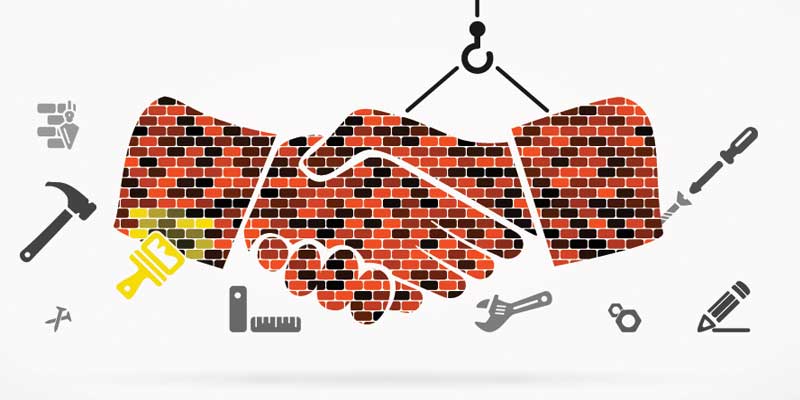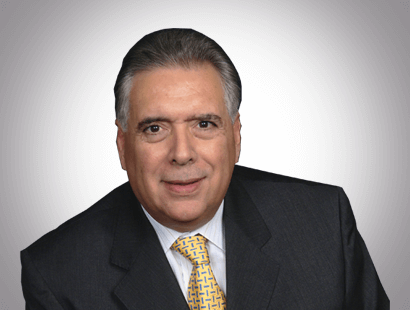

Javier O. Delgado
Set the anchor to stabilize your career Interview with GloCoach's Javier O. Delgado
By Alex Hung
Sept 2019
Building trust sounds easy, but it is actually easier said than done, especially in work environments where sometimes people are more conscious of their own well-being before thinking of others. This can create a lot of close doors for individuals or even companies and hinder their progress to step up and break through to the next level.
Today I had the chance to talk to GloCoach Javier O. Delgado, with his 35 years working in large corporate HRDs, here is what he had to say to Building Trust:
Alex: When asked about all the different challenges you've coached, why did you pick Building Trust as the most important?
Javier: Trust is the foundation of all business and life activities, whether buying and selling properties, selling a strategy, solving a family or personal issue, the trust factor is the key to eventually a successful outcome of any endeavor. Building trust is probably the key most important factor to attitude and behavior changes, when you have attitude and behavioral change, you have better results - exponential results, that is why trust is the foundation for all these things.
Alex: What exactly is building trust?
Javier: You don’t have trust at the beginning, you have to earn it, it doesn’t come automatically. Not everybody can do this, not everybody can earn trust. The word trust comes from the German word “trost” which means “comfort.” Trust is the belief that those on whom we depend will meet our expectations of them. Trust needs to be developed, it needs to be worked, but it can be trained and it can be skilled, especially by a coach.
Alex: When can we know for sure when someone has fully trust you?
Javier: When you have demonstrated consistency between what you say and what you do, you will see an increase in people delegating work to you, you are given more projects to do, asked to lead, in a way more work and responsibilities. There is no exact way to measure when you have fully built trust with someone. However, when trust is built around you, you will gradually feel you are valued much more than before.
Alex: To build trust with your colleagues/manager do you have to become their friends or "buddy buddy"?
Javier: Not necessarily, you have to use the formula above, friends or buddy’s at work can be a double edge sword. I don’t want to sound like I disagree with the buddy system, but there’s got to be a mutual understanding for coworkers that become friends in a company, that are able to confide with each other, because sometimes it doesn’t work out. Something can be misconstrued, there could be something that was accidently said, then all of a sudden there is conflict and frustration. I would say that there needs to be a level of maturity and sincerity, and it doesn’t come automatically, it comes over time, on your first week of work, it will be hard to earn or develop trust right away. It takes time for consistency and integrity to be demonstrated.
Alex: What are some advice you can give for people to build trust professionally?
Javier: There is no secret formula or magic bullet to trust but what is certain is that if any employee or person in a work environment of personal environment does these 3 basic principles of trust, they will be closer to earning to trust of others.
- Achieve results: Following through on business commitments, show that what is delegated to you can be accomplished. In business a lot of times results are one of the important indicators to see if you can be trusted to get things done.
- Act with integrity: Behaving in a consistent manner
- Demonstrate concern: Respecting the well-being of others. Trust goes both ways mutually. You have to first respect and trust others to have them to be able to respect and trust you. A lot of times this is easily said than done, because when no trust has been established, no one wants to be the first one to offer their trust in case it gets broken.
The above 3 basic principles of trust can then be applied and on different levels or waves to increase the range of trust, the different levels are as follows:
- 1.Trust yourself: You have to have self-trust and develop confidence in yourself that you are a person that can deliver results. Trust yourself to do things right and do the right thing consistently. You cannot earn trust from anyone if you do not trust yourself because how can you project trust if you don’t trust what you are doing.
- 2.Trusting relationships : Once you trust yourself, you can then branch out to trust inside of work, family, social settings and other individuals around you. People need to see you act with integrity with consistency, not just once in a while or to some people, you have to act with integrity with consistency to everybody. You need to achieve results, achieving result is like the saying “Walk the talk, talk the walk” you say something and you do it, you don’t want to say something and don’t do it, or you don’t say something and say “do as I say” and not as you do. It all has to be congruent. You say, you do, and you achieve it. You also have to demonstrate it to everybody.
- 3.Trusting organization : Once you go past trusting relationship and feel like people are trusting you and you are starting to become a leader, next is to start creating a trusting organization. The organization as a group has to believe in the guidance and the vision you are promoting and guiding them to. That type of trust is an organizational architecture or structure that is fair, equitable, and transparent. That is how you build trust in organizations. Making sure that you, again, walk the talk and talk the walk.
- 4.Trusting marketplace: Once you trust yourself, built trust with peers and subordinates, built an organization that is fair and transparent. Then you will want to build trust with the marketplace, with the services and product that the organization makes themselves or produces, that is another way where you build trust upon that.
- 5.Trusting social communities : Once you’ve gained the trust from all above, you will want the trust from communities. You will want your organization to be well known and respected by the communities at large with a good public relation stature and image.
Case in point, there has been many companies that have lost the trust of the communities and the market. One of the biggest examples is the Volkswagen emission scandal where they cheated through the pollution emissions test in the US. It cost them billions of dollars and worst of all cost them the trust from all levels, from individuals to the communities. Also, currently the Boeing 737 Max 8 jet airplane that has been grounded due to mistakes in software and a less than stellar transparency with the public and the aviation community. Over 350 passengers in 2 accidents have died due to the Boeing 737 Max 8 technical issues and a major global mistrust of the Company and the airplane is costing billions to Boeing.
Alex: There is a saying "Trust takes years to build, seconds to break, and forever to repair", what is your take on this quote? Is it possible to repair a trust that is broken? Especially in a work environment
Javier: I tend to believe that this is mostly true demonstrated by past events in life and in business. I believe the quote has a lot of merit, but for brand names, products and services I believe it is still possible to repair trust through admitting and apologizing sincerely and bringing public sentiment back. But it is different with human individual relationships, especially with peers/subordinates because the animosity between the mistrust is much greater. Because it is a one to one, one to a group, two to a group, there are human emotions that you see clearly between each other, which is going to delay restoring trust to the prior level. I would say there is probably a coin flip chance that trust cannot be restore at all, which is why you need to cherish and value the trust you have gained from each and every person, especially at in work environments.
Alex: What has been the impact of your coachees' career after you've coached them on building trust?
Javier: There are many benefits for my coachees once they were able to build trust within a work environment, I would say the main 3 impacts from most of them would be:
- Achieving changes in attitudes and behaviors, no matter if it with themselves (trusting themselves), or from others (trusting relationships).
- Get desired results due to new levels of activity and focus
- Self-development to a higher level
Alex: Any closing thoughts?
Javier: Building trust is really one of the most important factors in work environment. If you have trust, you are able to delegate more effectively to the right people, you can motivate and help people motivate themselves better when there is mutual trust, you can inspire people, there is much more benefits that come when trust is established around you. Ultimately, when people start all establishing trust around each other, you will realize the company growing, and that’s how successful companies come to be great companies to work for and becoming an awesome organization.
Additionally, a tough problem may require more than 6 months to resolve. It's important to set HR's expectations. Ultimately, the proper investment in the employee will pay huge dividends.
Want to schedule a GloCoach like Javier? Book a free trial here.
*The name of the company and the coachee have been changed to protect their privacy.









